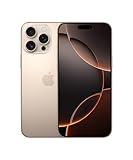Apple introduced ProMotion technology with the release of the iPhone 13 Pro and iPhone 13 Pro Max, allowing both flagships to run their displays at 120Hz, delivering a buttery smooth experience when performing tasks such as swiping, scrolling, or browsing through a multitude of applications.
With iOS 18, which was publicly released last week, Apple has introduced a few changes, but some of them were implemented without informing those who updated their devices to the latest software update. One of them was noticed by a tipster, and he has posted video evidence showing that iOS 18 has limited an iPhone’s refresh rate to 80Hz instead of letting it run at the default 120Hz.
Apple may have introduced this limitation to preserve battery life on iOS 18, but once again, without informing users
One of the first individuals to notice this ‘downgrade’ was Ice Universe, who notes that iOS 18 users should not be fooled by the latest software update’s elegance or animation fluency. Instead, he reports that there is a limitation set in place that prevents an iPhone’s refresh rate from going above 80Hz. He has posted video evidence below on X, showing that during a brief rapid scrolling session, a device that appears to be one of Apple’s latest iPhone 16 models does not go beyond 80Hz, and there are only minor faints showing that the screen touches 120Hz.
The refresh rate counter is visible, which may have appeared thanks to the installation of a 3rd-party application, showing the limitation introduced in iOS 18. It is possible that during rapid scrolling, Apple reduces the refresh rate to 80Hz to conserve battery life, but assuming that this is what is actually happening, users deserve to be informed before they proceed to update their devices. We are confident that some prefer a smoother scrolling experience over battery life.
If anyone still doesn't understand this, please watch this video. When scrolling through the list, iOS18 is always locked at 80Hz, and 120Hz is rarely seen.
source:weibo 孙斌1990 pic.twitter.com/lAJ10vBRad— ICE UNIVERSE (@UniverseIce) September 23, 2024
For those who do not know, this is not the only approach that Apple has followed to improve battery life on iPhones running iOS 18. It was previously discovered that Geekbench 6’s single-core and multi-core results are lower on devices that have the new software update running because there is a slight delay that prevents the performance cores from hitting their turbo frequencies immediately. While we can understand Apple’s goals, they do come while maintaining secrecy from its users, so while we will treat this video with a pinch of salt, we want readers to report such behavior from their iPhones with iOS 18 installed.
News Source: Ice Universe







